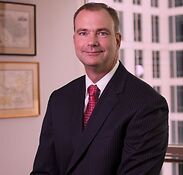There has been a long simmering debate in the Florida legal community about the appropriate standard for the admissibility of expert testimony at a trial in the Florida courts.
The question was whether to adopt the federal standard, commonly known as the Daubert test, or to remain with the less rigorous Frye test that has been the standard in Florida for decades.
We now have an answer: Frye is still the standard.
 Under the Frye test, general scientific acceptance is required for admissibility of expert testimony. Specifically, Frye states that “the results of mechanical or scientific testing are not admissible unless the testing has developed or improved to the point where experts in the field widely share the view that the results are scientifically reliable as accurate.” See Bundy v. State, 471 So. 2d 9, 13 (Fla. 1985) (adopting the Frye test).
Under the Frye test, general scientific acceptance is required for admissibility of expert testimony. Specifically, Frye states that “the results of mechanical or scientific testing are not admissible unless the testing has developed or improved to the point where experts in the field widely share the view that the results are scientifically reliable as accurate.” See Bundy v. State, 471 So. 2d 9, 13 (Fla. 1985) (adopting the Frye test).
The focus of Frye is not on the testimony itself, but rather on whether the testing and procedure followed in reaching that testimony was generally accepted as reliable. Under Frye, it is the scientific community that serves as the gatekeeper of admissible expert testimony.
In contrast, under Daubert, it is the judge who serves as the gatekeeper of admissible evidence.
The focus is the reliability and the relevance of expert testimony. Daubert does not require “general acceptance”; rather, it requires a determination by the trial judge of “whether the expert is proposing to testify to (1) scientific knowledge that (2) will assist the trier of fact to understand or determine a fact in issue.” Daubert v. Merrell Dow Pharm., Inc., 509 U.S. 579, 592 (1993).
That determination should be made by asking the following key questions: (1) “whether a theory or technique can be (and has been) tested”; (2) “whether the theory or technique has been subjected to peer-review and publication”; (3) and the “known or potential rate of error” in that particular scientific technique.” Id. at 592-594.
The federal courts and the majority of state courts have adopted the Daubert standard of admissibility. Florida did not. In 2013, however, the Florida Legislature adopted the Daubert test by amending sections 90.702 and 90.704 of the Florida Evidence Code. This amendment was known as the Daubert Amendment.
But, the Florida Legislature did not have the last word.
The Florida Supreme Court recently rejected the Daubert Amendment and squarely sided with the Frye test due to the Court’s concerns that Daubert unconstitutionally undermines a Florida citizen’s right to a jury trial and denies access to courts. See In re Amendments to Florida Evidence Code, No. SC16-181, 2017 WL 633770 (Fla. February 16, 2017).
To the extent the Daubert and Frye tests are procedural, the Florida Supreme Court has the last word on this subject. And, in a well-reasoned opinion by Florida Circuit Judge Meenu Sasser, the tests have been held to be procedural. See Nixon v. R.J. Reynolds Tobacco, 2017 WL 1082449, **3-4 (Circuit Court of Palm Beach County, Florida, February 27, 2017) (Sasser, J.).
Frye has survived in Florida.
- Shareholder



